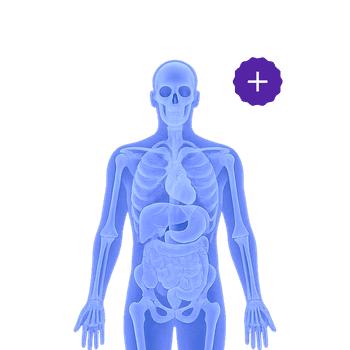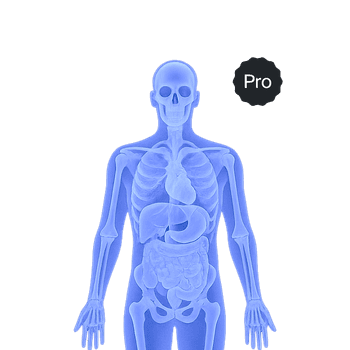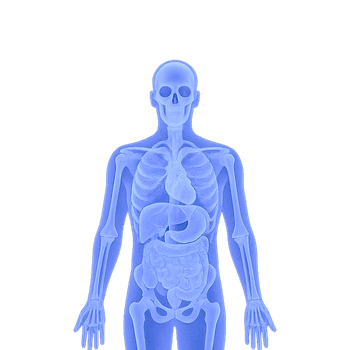Quick version
The thyroid gland is a small but central hormone-producing gland that controls the body's metabolism and energy.
- Produces the hormones T3 and T4
- Regulates metabolism, heart rate, and body temperature
- Controlled by the pituitary gland via TSH
- Common diseases include hypo- and hyperthyroidism
- Can be affected by autoimmune diseases such as Hashimoto's and Graves'
What is the thyroid gland?
The thyroid gland is a hormone-producing gland located in the front of the neck. It plays a crucial role in the body's metabolism, energy production, and growth. The thyroid gland produces the hormones thyroxine (T4) and triiodothyronine (T3), which affect almost all cells in the body.
Anatomy and location
The thyroid gland is located in the front of the neck, just below the larynx. It consists of two lateral lobes that are connected by a narrow bridge of tissue (isthmus). In an adult, the gland weighs about 20–30 grams.
Hormon production
The thyroid gland produces the vital hormones T4 and T3 with the help of iodine. The hormones regulate the body's metabolism, affecting heart rate, body temperature, digestion, weight and energy levels. Their production is controlled by the pituitary gland via the hormone TSH (thyroid-stimulating hormone).
Importance for the body
Through its hormone production, the thyroid gland affects almost all organs and functions of the body. It is particularly important for:
- Metabolism and energy expenditure
- Brain and nervous system development
- Heart and circulation
- Body temperature
- Growth and development
Common diseases and conditions
The thyroid gland can be affected by several different diseases that affect hormone production or its structure:
- Hypothyroidism (underactive thyroid, lack of thyroid hormone)
- Hyperthyroidism (overactive thyroid, excessive hormone production)
- Hashimoto's thyroiditis (autoimmune inflammation leading to hypothyroidism)
- Grave's disease (autoimmune disease leading to hyperthyroidism)
- Thyroid nodules and cysts
- Thyroid cancer (uncommon but common)
Relevant symptoms
- Fatigue or lack of energy
- Weight changes (increase in hypothyroidism, decrease in hyperthyroidism)
- Effect on pulse and heart rate
- Feeling cold or hot
- Enlarged thyroid gland (goiter) or lumps in the neck
Related conditions and diagnoses
- Hypothyroidism
- Hyperthyroidism
- Hashimoto's thyroiditis
- Grave's disease
- Goiter (enlarged thyroid gland)
- Thyroid cancer























